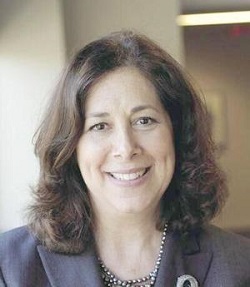12/14/2020
Exercise Care When Discussing Estate Plan with Family
- Share This Story
BECKY RASPE | SPECIAL SECTIONS STAFF REPORTER
Article reprinted with permission from Cleveland Jewish News
Communicating with family during the estate planning process can help mitigate any issues and make it easier for important decisions to be made.

Adel
But how do you broach such a sensitive subject? Mitch Adel, managing partner at Cooper Adel Vu in Centerburg, Sidney and Chillicothe, and Carol Wolf, assistant vice president of planned giving and endowment at the Jewish Federation of Cleveland in Beachwood, shared some advice.
“Before the conversation starts, make sure you do your homework so you are prepared,” Adel said. “Think about your objectives, who should be involved and the expertise you need.”
Adel suggested first connecting with estate planning/elder law professionals to talk about your concerns. Most offer a free consultation where you can explain your situation, your concerns and your options.
“Look for seasoned professionals or certified specialists with expertise and focus in working with families like yours,” he said. “One way to approach the conversation is to tell your family what you have done about your estate planning and why it’s important to you. Let them know the positive steps you’ve taken to assess where you stand and how you have found compatible and experienced estate planning professionals who can partner with you to make your plans a reality.”

Wolf
But there are two different types of families, Wolf explained. Some start early with planning and discussing the inevitability of death, and others avoid the conversation.
“If you know you have wealth and assets to pass on, your children might seem young to talk about these things but the messaging is, if this is important, you want to have those conversations while they’re young to increase the likelihood they’ll understand,” she noted. “Like with philanthropy, you want to share what is important to you. Share your feelings and ask about theirs. If you keep doing that, they’ll be used to talking about it when they get older.”
The families that have a lot of confusion and secrecy around their estate plan tend to deal with a lot of mystery around end of life wishes, which makes these conversations much harder, Wolf added.
And the COVID-19 pandemic introduces unique barriers to meaningfully discuss estate planning. While these conversations are better off taking place in person, the professionals had advice for when that isn’t an option.
“You can always really try to get together with your small bubble, though it is not easy,” Wolf said. “Most people, and at least some of their children, don’t live in the same city. So, you’ll have to deal with Zoom and FaceTime to bring everyone together. You can also sit down and write out your feelings and values surrounding your wealth and philanthropy. This is a good time to look inside and think about what you want your children to do when you’re gone.”
Wolf suggested sending those ideas in a letter, using it as a personal gesture to initiate conversation.
No matter how you plan to hold the conversation, Adel said the approach is the most important part.
“These are stressful times, but now more than ever before, we are all thinking about our mortality and the implications it has for our families,” he noted. “The important thing is to approach the conversation with calm and empathy. Finding the right time and circumstances to discuss these issues can also make it easier.”
In the event there is push back from family members or conversations don’t go well, Adel said diffusing uncomfortable feelings starts with actively listening to concerns.
“Lean forward, maintain eye contact and try to paraphrase what they are saying,” he suggested. “Try some techniques such as reflection, for example, ‘it seems that you are uneasy about having me in charge of mom’s affairs if she is ill.’ Then be quiet, let them air their grievances or issues. Listen carefully and try to identify their underlying issues.”
After having these conversations, reflect on what’s been said. If there are still issues, try your best to consider them.
“Hopefully you have the opportunity to do all the thing we’ve talking about, like having these conversations when they are young,” Wolf said. “If you missed that boat, then try and do it as soon as possible. Make sure you have a will and state in there exactly what you want to happen. So, if you’re not going to have these talks, though you should, your wishes will be followed anyway.”

